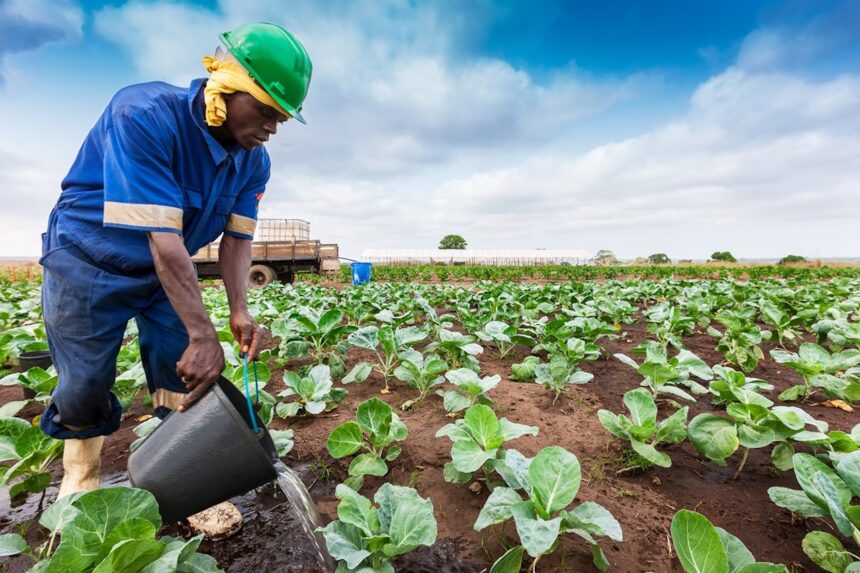Adequate crop care is fundamental for farmers aiming to achieve above-average yields that offer good-quality produce.
As temperatures begin to rise due to the change in seasons, it becomes essential for crop farmers to implement strategies that enable them to care for their crops.
Crop care is fundamentally associated with activities undertaken to ensure the healthy growth of crops.
The starting point is to realise that as temperatures increase, the transpiration and evaporation rates on the leaf surfaces of the crops and the soil tend to increase.
To mitigate this, farmers can apply mulch on the seed beds and spray water over the foliage (leafy part) of the crops to create a cool environment.
However, this practice is discouraged for tomatoes, as it may lead to fungal diseases.
Mulching has the benefit of reducing evaporation by keeping the soil underneath the mulching material cool.
Another crop care strategy involves implementing an irrigation plan to ensure crops are watered early in the morning and late in the evening when the environment is cool. It is important to avoid irrigating crops during the peak sunlight hours of the day (11h45 to 16h45) when it is extremely hot, as it may lead to high rates of evapotranspiration.
Essentially, it is always advisable to consider the water requirements of the crop grown so that an effective irrigation schedule can be developed.
Overwatering can cause problems such as leaching in sandy soils, and waterlogging in clayish soils.
Leaching is when essential water-soluble nutrients are washed away from the root zone due to excessive rain or irrigation, making them inaccessible to crops.
Waterlogging restricts gaseous exchange, which is essential for the movement of carbon dioxide into the roots,, and the release of oxygen through the leaves of the crops.
Another important strategy that can be implemented is minimal tillage of the soil. This approach is crucial in extremely hot areas, where daily average temperatures exceed 32°C.
To ensure that soil moisture is retained for a longer period in the crop field or garden, it is advisable to avoid tilling the soil, as it exposes the soil to warm temperatures that trigger fast evaporation of moisture from the soil.
Only till the soil when incorporating manure or fertiliser into the soil, and when trying to increase the levels of carbon dioxide to stimulate photosynthesis in the leaves of the crops.
Furthermore, farmers should have a scouting plan to detect pests and diseases early.
This will help them develop regular spraying programmes to keep pests and diseases under control.
With warm temperatures, there is a high possibility of increased pest infestation and disease occurrence.
Lastly, it is essential to care for your crops throughout the summer growing season, as it directly influences crop yields and significantly impacts the quality of produce that will reach the market.
*Hanks Saisai is Agribank’s technical advisor on crops and poultry.


